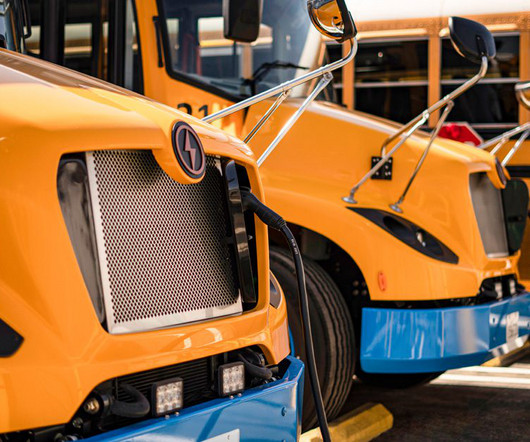Sustainable Rail International, U of Minnesota partner to develop most powerful carbon-neutral locomotive, using new steam engine and biocoal
Green Car Congress
MAY 22, 2012
CSR says that preliminary research suggests that the test locomotive will cost less to maintain and less to fuel, and will also exhibit significantly better horsepower output at higher speeds than current diesel-electric locomotives that pull the majority of passenger trains in the US.



















Let's personalize your content